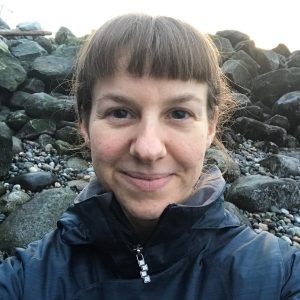March 19, 2026: IRES Faculty Seminar with Dr. David McMillon
This talk will discuss a framework for systemic discrimination that has applications ranging from reparations and the racial wealth gap, health disparities, and environmental racism.
March 5, 2026: IRES Professional Development Seminar with Helen Brown
The session will adapt to the questions and interests of the group but might include an intro to services and resources available at UBC Library and tips for managing the research process.
January 29, 2026: IRES Faculty Seminar with Dr. Aisling Rayne
This talk explores the multiple meanings and effects of new nonhuman neighbours, and how to support more inclusive and transparent environmental decision-making
March 12, 2026: IRES Faculty Seminar with Dr. Emily Yeh
Join Dr. Emily Yeh for her seminar on the political economy of geothermal development in Indonesia
April 2, 2026: IRES Professional Development Seminar with Rich Francis
This session offers a broad overview of the history and implementation of the US federal Comprehensive Environmental Response, Compensation, and Liability Act (CERCLA), also known as Superfund, that governs the cleanup of historical hazardous material waste sites.
February 26, 2026: IRES Faculty Seminar with Dr. Sally Pusede
Join Dr. Sally Pusede for her talk on coal dust pollution and environmental justice.
April 16, 2026: IRES Student Symposium with Samantha Blackwell, Anaïs Pronovost-Morgan, Renata Rovelo and Valerie Zimmermann (Last seminar in Term 2)
Join us for our student symposium, given by four IRES grad students!
Talk titles:
1. “Birding is like a gateway drug”: The role of bird observation in urban human-nature relationships
2. Exploring Non-Indigenous City Employees’ Emotions and Responsibilities in the Implementation of Vancouver’s UNDRIP Strategy
3. Listening to the River: Sḵwx̱wú7mesh Relationships with Water
4. Assessing the Impacts of Organic Farming Practices on Farm Economics and Climate Resilience in British Columbia
April 9, 2026: IRES Faculty Seminar with Dr. Kaitlyn Gaynor
This talk explores how human disturbance shapes risks and resources for wild animals, and how responses of animals can have implications for ecological dynamics and human societies. This can help inform more effective biodiversity conservation and human-wildlife coexistence on an increasingly crowded planet.
January 15, 2026: IRES Student Seminar with Neha Sharma-Mascarenhas and Jessica Mukiri (First seminar in Term 2)
Join us for the first seminar of term two, given by our IRES PhD students!
Topics: Electronics at the End-of-Life: Repair Ecosystems, Consumer Decisions, and Policy Barriers and Consumption of Alt-Proteins to Mitigate Food Greenhouse Gas Emissions in Canada
February 12, 2026: IRES Student Seminar with Chloë Chang and Aloy Kouzak Campos da Paz
Join us for our upcoming seminar, given by two IRES grad students!
Topics: Can profit maps trigger win-win management solutions for the environment and farmers?
and Socio-Economic Wellbeing in B.C.’s Energy Transition









